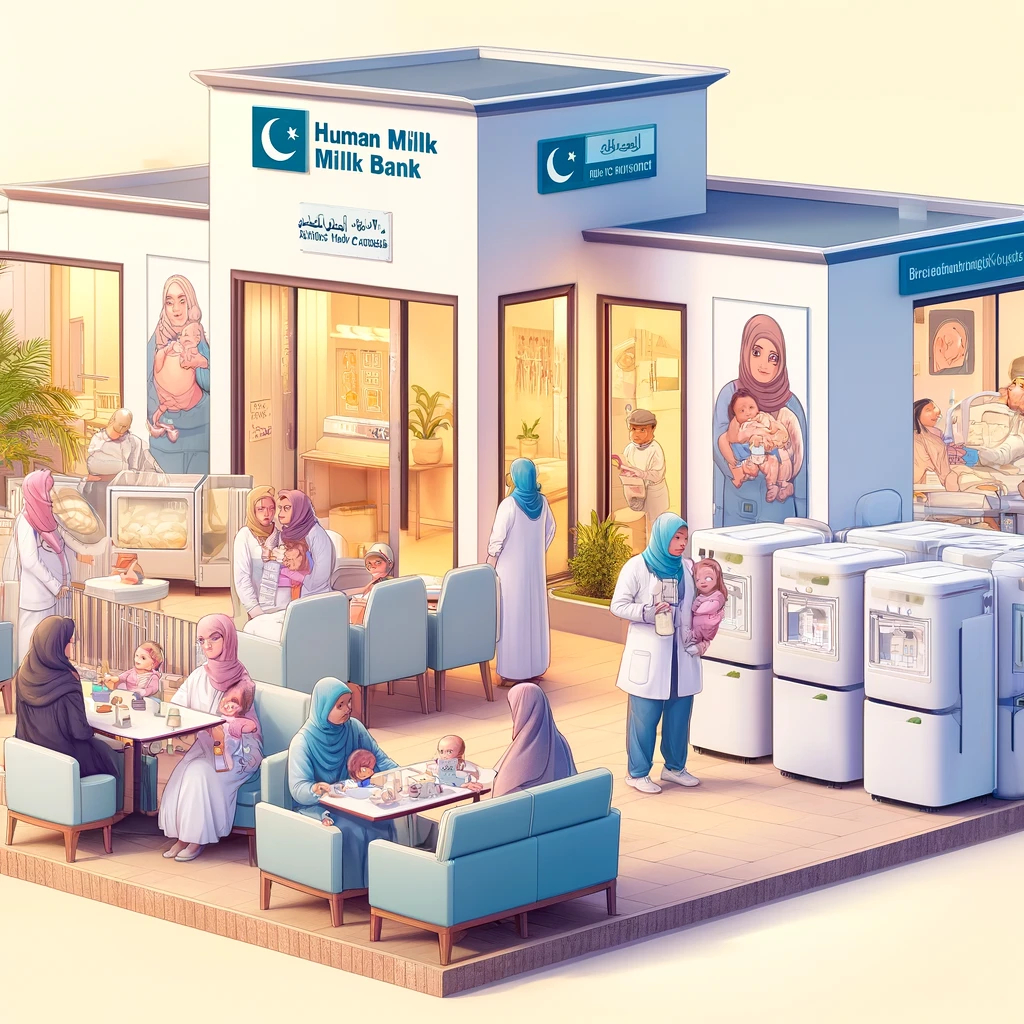
Karachi: A Milestone in Maternal and Child HealthIntroduction In a significant stride towards maternal and child health, Pakistan's first Human Milk Bank, accompanied by an Early Childhood Center, has been inaugurated in Korangi, Karachi. This initiative, a collaborative effort between the Government of Sindh and UNICEF, marks crucial development in providing optimal nutrition and care to newborns, particularly in neonatal intensive care units (NICUs).
The Shariah-compliant Human Milk Bank was officially inaugurated by Sindh Health Minister Dr. Azra Pechuho. This facility aims to support infants who are unable to receive their mother’s milk due to various reasons. It ensures the provision of essential nutrients, antibodies, and protective factors necessary for the growth and development of premature or sick infants.
The primary goal of the Human Milk Bank is to serve hospitalized infants in NICUs by offering donor milk. This milk is crucial for providing optimal nutrition and immunity to vulnerable infants. Additionally, the facility aims to support and educate breastfeeding mothers, promote breastfeeding awareness, and facilitate research on human milk and lactation.
UNICEF Pakistan, represented by Abdullah Fadil at the inauguration, has played a vital role in providing technical and financial support for the establishment of the milk bank. The organization is committed to expanding such facilities to other hospitals across Pakistan, enhancing the reach and impact of this initiative.
During the inauguration ceremony, Dr. Azra Pechuho emphasized the importance of mother's milk, advocating for exclusive breastfeeding for the first six months of an infant's life. She highlighted the significant health benefits of breastfeeding, which include optimal nutrition and enhanced immunity for newborns.
The establishment of Pakistan's first Human Milk Bank in Karachi is a landmark achievement in the country's healthcare landscape. It underscores a commitment to improving maternal and child health through innovative and culturally sensitive approaches. As the facility begins its operations, it is expected to set a precedent for similar initiatives across the nation, fostering a healthier future for Pakistan's youngest citizens.

Comments
Post a Comment
Give your Comments here... اپنی رائے کا اظہار یہاں کریں۔۔۔۔۔۔۔۔۔۔۔۔۔۔۔۔۔۔۔